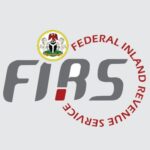The Federal Inland Revenue Service (FIRS) recently announced that it generated N10.1 trillion in 2022, rising from the N6.4trn it had generated in the preceding year. Daily Trust on Sunday in this piece dissects the reforms at the Service that has led to this milestone.
The Federal Inland Revenue Service (FIRS) has been making steady gains in revenue generation for the federal government, announcing during the week that it broke its record on the amount of tax generated in a year.
The Service stated that it generated N10.1 trillion in 2022, the highest tax collection ever recorded in its history, thereby achieving over 96 per cent of its collection target for the year.
A breakdown of this indicated that N5.96trn was generated from non-oil revenue while oil revenue contributed N4.09trn.
- Service for sale: How police commercialise security operations amid manpower shortage
- Breaking the glass ceiling: Women in journalism and Nigerian example
From this, the Service generated N2.8trn from Company Income Tax while Value Added Tax was N2.51trn, Electronic Money Transfer Levy generated was N125.67bn and Earmarked Taxes, N353.69bn.
This feat is on the heels of the Service generating 100 per cent of its revenue target in 2021 with taxes of N6trn brought into government coffers.
In the heart of this achievement is the introduction of tax automation. The Service had in the second half of 2021 introduced the TaxPro Max which has enabled taxpayers to file their tax returns online, thereby removing the cumbersome process of visiting tax offices before tax payment can be paid by companies and individuals.
According to the FIRS, the TaxPro Max system “connects to the Corporate Affairs Commission (CAC) to retrieve accurate details of business incorporation and issues/enables/validates your unique business Tax Identification Number (TIN). Once allocated, the TIN cannot be changed. After this, you can update as you deem fit, personal and business information for tax administration purposes and apply across all taxes.”
The innovation was necessitated by the dwindling revenue from oil sales, which has been the mainstay of the federal government over the years, due to oil theft and surge in subsidy payment, the government has relied on the FIRS to fund the Federation Account Allocation.
The World Bank had in 2021 judged Nigeria to have the lowest revenue to GDP to be the lowest in the world.
The bank’s Country Director for Nigeria, Shubham Chaudhuri, who made the submission stated that the standard in most countries is for the government to make 15 to 20 per cent of GDP as revenue.
“In Nigeria, it was eight per cent in 2019. In 2020, in the middle of the COVID-19 crisis and with the fall in oil prices, that went down to about between five and six per cent.”
Similarly, the public uproar on the country’s increasing debt profile made the Minister of Finance Budget and National Planning, Zainab Ahmed, to state that Nigeria is not having debt issues but that of revenue as low revenue performance was based on issues in the oil sector.
Speaking on the revenue generated in 2022, the Executive Chairman of FIRS, Mr Muhammad Nami, said it was feasible through the implementation of strategic reforms over the past two years as well as the innovative deployment of technology for automation of both tax administration and operational processes.
On the outlook for 2023, Nami maintained that the Service would build on the current reforms to establish a resilient Service that would continue to provide sustainable tax revenue to fund the government.
“We intend to maintain, and even improve on the momentum in 2023. We have peaked, but this is not certainly our peak. In fact, my hope is that this would be the least sum the Service would ever collect going forward. Our goal is to identify more areas where we can improve on the delivery and efficiency of our collection; and plug loopholes, while deploying innovative reforms in data and artificial intelligence.”
He said the Service could shoulder the responsibility of providing revenue needed for the governments across the federation through taxes with the much-desired support from the three tiers and arms of government, as well as all stakeholders.
An Africa Tax Leader at PwC, Taiwo Oyedele, said the federal government can fund its annual budget from tax if loopholes are fixed in the administration process in the country.
In a tweet, he said the Service can do this with “Tax harmonization, unifying all tax collection functions into one agency and repealing the myriad of multiple taxes to focus on a few broad-based taxes. Tax intelligence, using data for tax intelligence by linking all economic activities of every taxpayer including income, spending and investments to identify tax evaders and coordination, ensuring effective handshake between fiscal and other economic policies, as well as horizontal & vertical coordination (i.e., across federal agencies & subnational govts).”
He added that to improve tax payment in the country, the government needs to spend the taxes judiciously while being accountable to taxpayers.
Similarly, a Tax Partner, Kenneth Erikume, stated that the reforms in automation by FIRS through investment in the tax ProMax has been on a periodic basis to improve the system.
“So, it now allows taxpayers in the comfort of their office to file their returns and make their tax payment through multiple channels. One of the things they did last year, which is quite laudable is the automated tax clearance certificate and that has been a problem for tax payers. This is because the certificate is used for many things in business including for importation, getting regulations permits and so on.”
He added that with the automation of the process, “as long as you are up to date in terms of your tax compliance, the system will issue the certificate automatically once you do your application. They have also tried to invest quite a bit in data, particularly, banking data and financial services data, because the law actually empowers them.”
He added it is not only the reforms that contributed to the shift from N6.4trn in 2021 to N10.1trn 2022 as there is a huge lift in petroleum tax from N2trn to the upward of N4tr, contributing at least N2trn. “The reason for that is that most of the petroleum profit tax that government collects are from the organized formal oil and gas sector, the upstream guys. When the price of crude increased during the period, despite the oil theft and all the challenges we had, their taxes will go up because their profit will go up significantly.”
However, he said the government increasing the rate of taxes does not bode well for companies to thrive as it is aimed on short term revenue generation.
“If you look at the finance bill 2022, most of them are looking at short term measures around increasing taxes, so the proposal to increase education tax from 2.5 per cent to 3 per cent and the removal of investment allowance, the introduction of gas flaring tax, are all short term measures and in my view that is not the approach we should be taking to sustain and increase revenue.”
“What you do when you increase taxes is you are collecting from the same tax payers and you will squeeze the life out of them. So, the government needs to focus more on expanding the tax net. I know we have made some investments and other things but the level of data we are getting and the formalization of the informal sector, is really where the huge gap in the tax to GDP ratio is coming from; this is because we have those that contribute to the GDP but who do not contribute to tax.”
“So, we need to look a bit more at what India did, I appreciate that it is another jurisdiction and some of the restructuring was easier for them. What they did was to ensure that every single transaction that goes through the banking channel is tied to the payer and the payee, so they essentially know what the transactions are and know whether it is income for one person or whether it is subject to VAT, Withholding Tax or if is a gift or transfer from one person’s account to another account belonging to the person.
“So, with that, they are able to analyse everything to make the government have insight on transactions and they were able to capture more informal players into their tax net after they did that.”

 Join Daily Trust WhatsApp Community For Quick Access To News and Happenings Around You.
Join Daily Trust WhatsApp Community For Quick Access To News and Happenings Around You.


